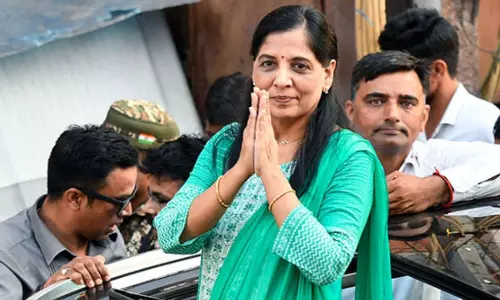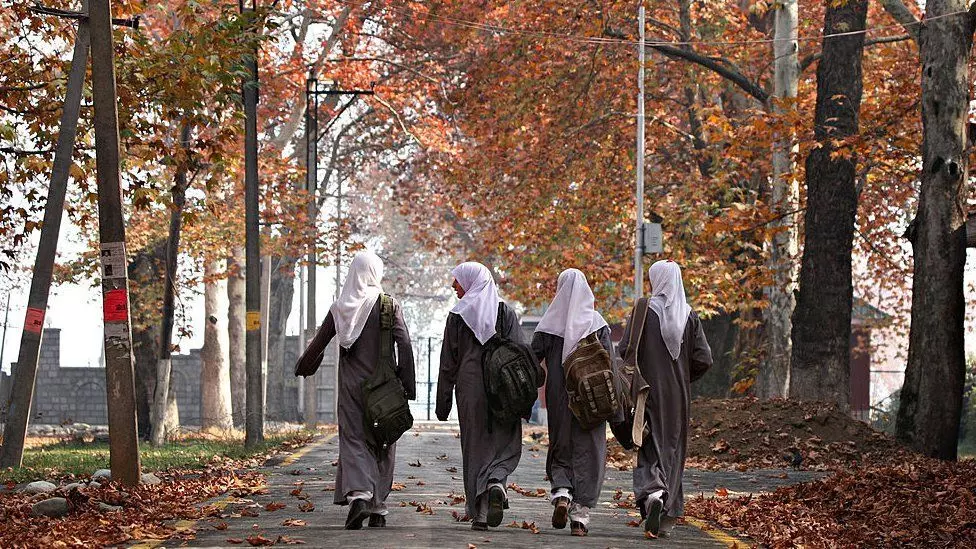
The difference between Priyanka and Habiba: a tale of discriminatory employer mind-set
text_fieldsA marked feature of the education and employment scene of the country is the forward march of women. This is evident from our SSLC and Higher Secondary pass rates to the top rank in the Civil Service Examination. Women are making their mark in schools and workplaces, overcoming twice as many barriers as boys or male job seekers. When it comes to socially backward sections - to be precise Muslims, Dalits, Adivasis and Bahujans - they are likely to face more forbidding hurdles. Yet have there been any mechanisms anywhere - which boast about women's empowerment and women's emancipation - to encourage those who are determined to fight? We have before us the recent examples of Fatima Latif, who had to put an end to her life in a university due to the 'mistake' of being born into a particular community, and Deepa P. Mohan, who spent ten precious years of her life struggling for basic facilities of research. The shocking experience is that even the internal mechanisms functioning in these institutions to prevent discrimination and ensure relief and justice are chambers of racism, sectarianism and communal bias. However, a recent study reveals that there is a parallel level of discrimination in the employment sector of India.
The report of a 10-month study conducted by the Led By Foundation with the support of Maulana Azad National Urdu University and the Centre for Development of Policy and Practice draws our attention to the plight of Muslim women candidates in the private sector of the country. The research team sent job applications to employers through sites such as LinkedIn and Nowkri.com in the name of two candidates, along with their CV's showing the same educational qualifications, scores and experience. The identical applications had only one small difference between them: one application was by Habiba Ali and the other by Priyanka Sharma. It may seem insignificant, but the difference was huge. They were considered as applicants from two religious sections. Over a period of eight months, a thousand applications were submitted for equally qualified Habiba and Priyanka. While Priyanka got 208 positive responses, Habiba received less than half of that - only 103. After receiving the application, Priyanka received phone calls for further action from 41.3 per cent employers whereas Priyanka, Habiba received calls from only 12.6 per cent. The patently discriminatory approach came not only from the traditional job sectors but also from the so-called new age employment sectors like IT, e-commerce and marketing. Further, the trend is noticed not only in states where communalism and sectarianism are rife, but all over the country.
This news item of discrimination is not to be pushed aside as isolated incidents. Caste atrocities, misogyny and anti-minority sentiments have been turned into accepted mainstream practices by turning a blind eye or through denial mode. According to the 2011 census, Muslim women make up only 15% of the workforce in the country. There is no gainsaying that social and community factors have contributed to this under-representation. There was a time when Muslim girls and women faced various restrictions from the community and families to study and go to work. Although no new national census has been conducted to accurately assess the current situation, big strides have been made between 2011 and 2021 in the education of Muslim women in India. A striking example of this is the recent incidents in Karnataka where hijab-wearing girls from schools in Karnataka, where hijab was not allowed inside , were preparing for higher studies after passing with high marks. . Even in such a situation, it is the sectarian narrative and skewed notions that make employers readily embrace Priyanka and blindly reject Habiba. True, we are not in a situation in India where we can assume that all such discrimination will end overnight or that there will be some initiative by the authorities to end it. But clearly the way forward for female students and job seekers is to be determined that they will continue to surge forward by learning and fighting.























